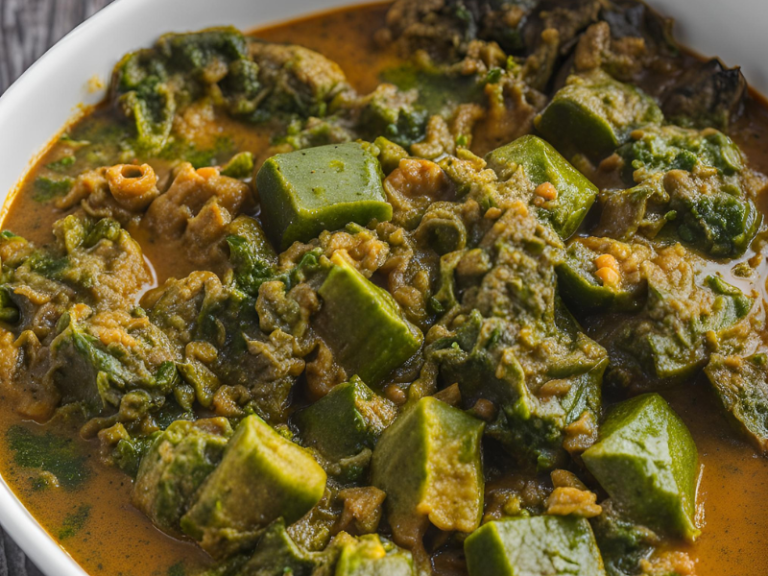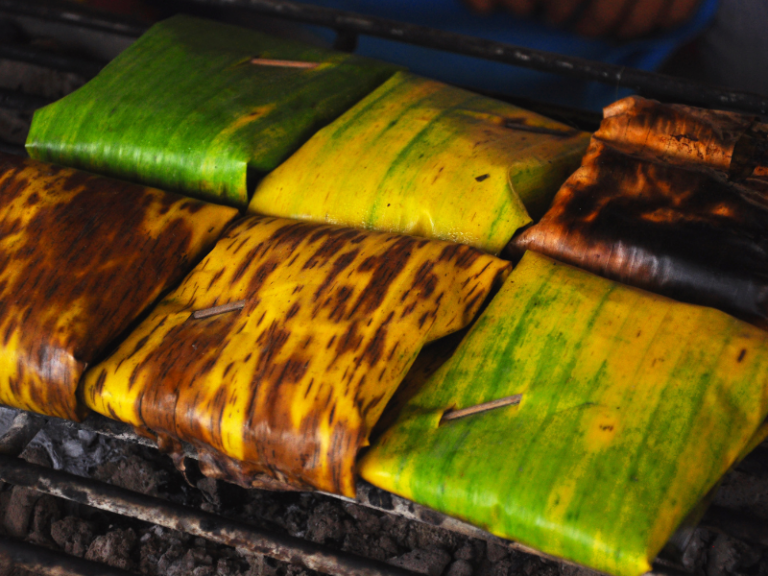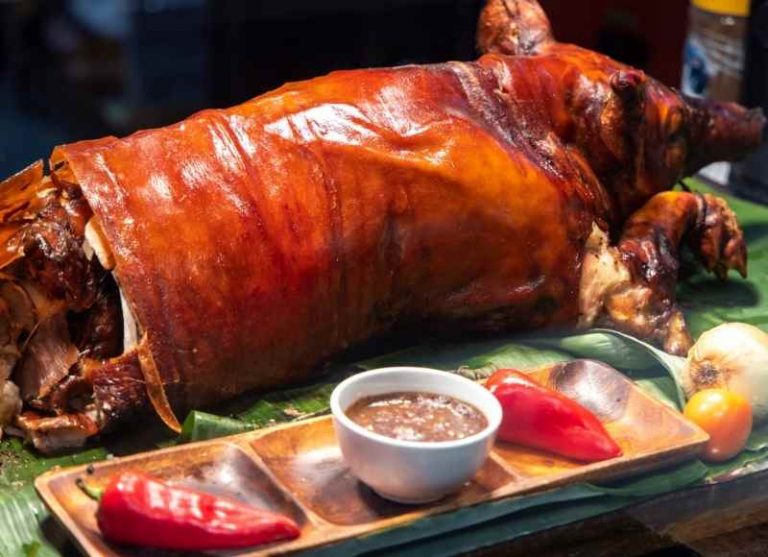Rwandan Food: 7 Traditional Dishes of Rwanda
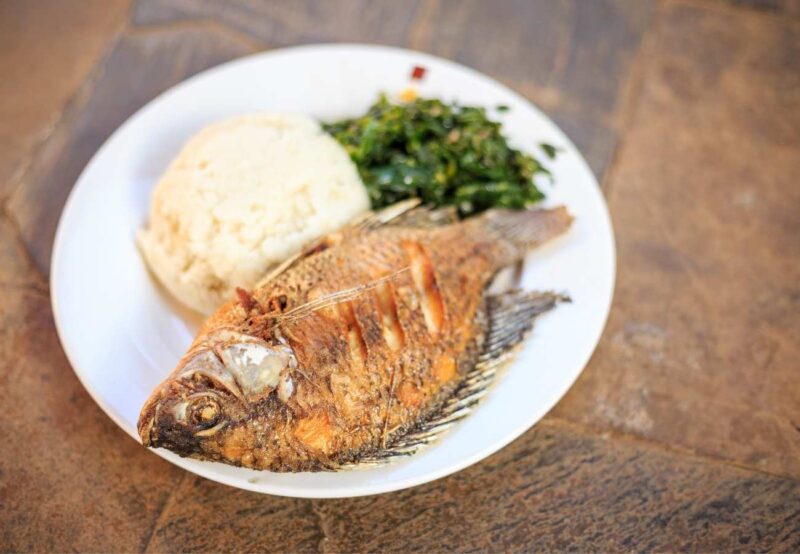
Rwanda is a landlocked country located in the Great Rift Valley, an area where the African Great Lakes region and East Africa meet. One of Africa’s smaller nation states, Rwanda’s neighboring countries include Uganda, Tanzania, Burundi, and the Democratic Republic of the Congo.
Known as the land of a thousand hills, Rwanda is known to be the only country in the world where citizens along with their President take part in Umuganda, (National service activities), which is held every last Saturday of month.
The population of Rwanda consists of many different ethnicities including Hutus (which is also the largest ethnic group making up to 85% of Rwanda’s population), the Tutsis, and the Twa.
In Rwanda most people consume simple food which is prepared with locally grown ingredients. Rwandan cuisine is not just influenced by the countries surrounding it but also the countries that had occupied it, such as Germany and Belgium.
Rwandan cuisine is completely based on primary foods which are grown by the traditional subsistence-level agriculture. However, many recipes vary across the different regions of Rwanda.
Staples ingredients of Rwandan cuisine include bananas, plantains, beans, corn, peas, millet, cassava (manioc), pulses and sweet potatoes. Animal protein is a rare ingredient that is added to dishes in rural areas.
However, in urban areas meat is much more abundant, with beef and chicken being the most popular meats. People living near lakes also eat lots of fish as it is an easy access.
Isombe
Isombe is a Rwandan delicacy prepared using pounded cassava leaves. Considered to be one of the most popular Rwandan dishes, isombe is similar in appearance to a spinach dish, and is often served as a side or main dish.
The mashed cassava leaves are boiled and a variety of ingredients are added to the stew, including onions, leeks, eggplants, coriander, garlic, tomatoes, and bell peppers. In order to hold it all together, a spoonful of peanut butter and a drizzle of oil are added to the stew. Traditionally, isombe is accompanied by rice or porridge or beans on the side.
Ugali
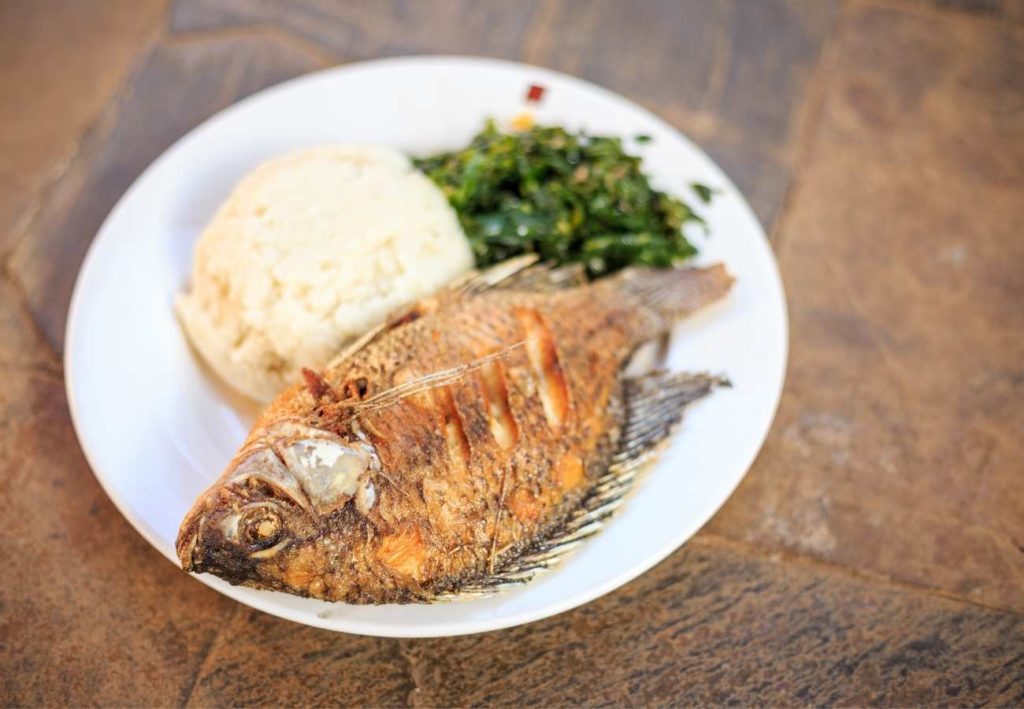
Ugali, also known as bugali, is a kind of white porridge which is prepared using maize and is cooked in either water or milk. Having a dough-like thick consistency, ugali is generally consumed as a side dish.
This savory dish is both inexpensive and filling and is a staple right across East Africa, not to be confused with fufu which is made using cassava and plantain.
However, the preparation of this Rwandan dish is both time-consuming and labor-intensive. Generally prepared by Rwandan women, the cooking of bugali starts with the crushing of maize (corn) in a large pestle and mortar to create a flour. It is then cooked in boiling water until it reaches its dough-like consistency.
Bugali is almost tasteless when cooked on its own. Hence, it is balanced by adding meats, veggies, stews and sauces, which makes it a perfect blend of complex flavors.
Igisafuria
Igisafuria is a combination of different dishes prepared together. The base is typically chicken and other ingredients like bananas (for a slightly sweeter flavor), Irish potatoes, meat, beans etc. are also added. The dish is then topped with sauce which is generally marinated in onions, tomatoes, spicy peppers, and celery chunks, making the broth thicker and giving igisafuria its flavor.
The name igisafuriaactually means “pot” in the native Rwandan language. It refers to the fact that all of the ingredients that are used in the dish are prepared in a single pot. Throughout Rwanda, one can find many variations of igisafuria.
Urwagwa
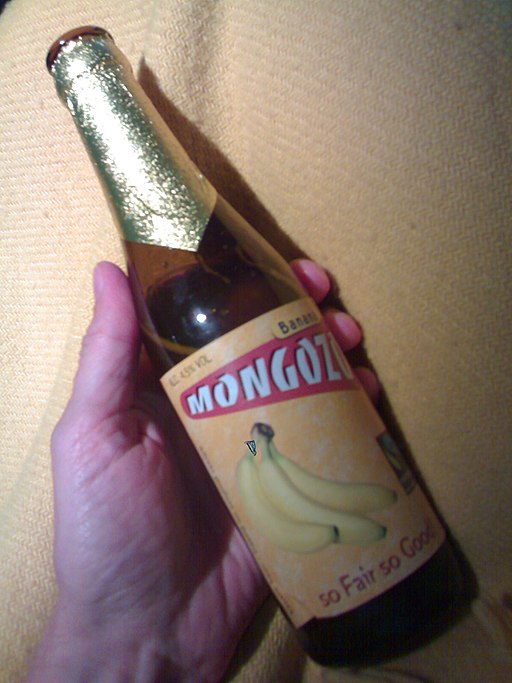
Urwagwa, also known as “banana beer”, is a traditional alcoholic drink which is prepared using ripe bananas from East African highlands. In order to prepare Urwagwa, the bananas are first mashed and then fermented.
Although, its preparation does require the usage of some grain (in the form of flour). The flour acts as a source of wild yeasts which further help to convert the fruit’s sugars into alcohol.
Urwagwa plays a very important role in numerous rituals of Rwanda’s tribes and is typically served at every Rwandan wedding and cultural ceremony.
Brochettes
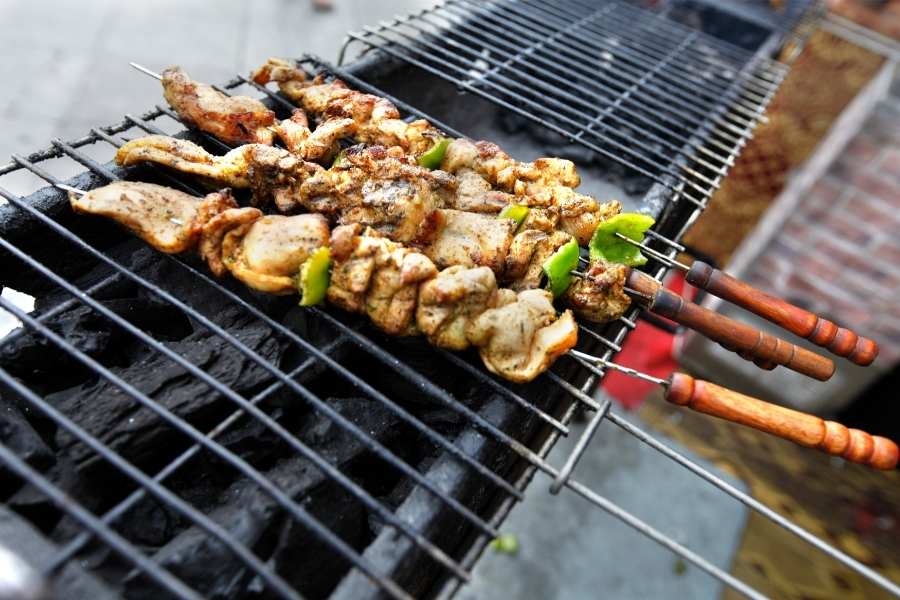
Brochettes, often considered to be the national dish of Rwanda, comprises of meat or fish on a skewer which is then barbecued or grilled. The meat that is used to prepare Brochettes is usually goat, beef, chicken or pork.
The meat is first soaked into a marinade (usually prepared using tomatoes, onions, peppers and vegetable oils) and then grilled over hot coals. Sometimes vegetables onto the skewer alongside the meat.
Brochettes are typically served with roasted potatoes, deep-fried bananas or fresh salads. Although Rwandans don’t consume much meat, Brochette is considered to be one of their most popular dishes.
Kachumbari
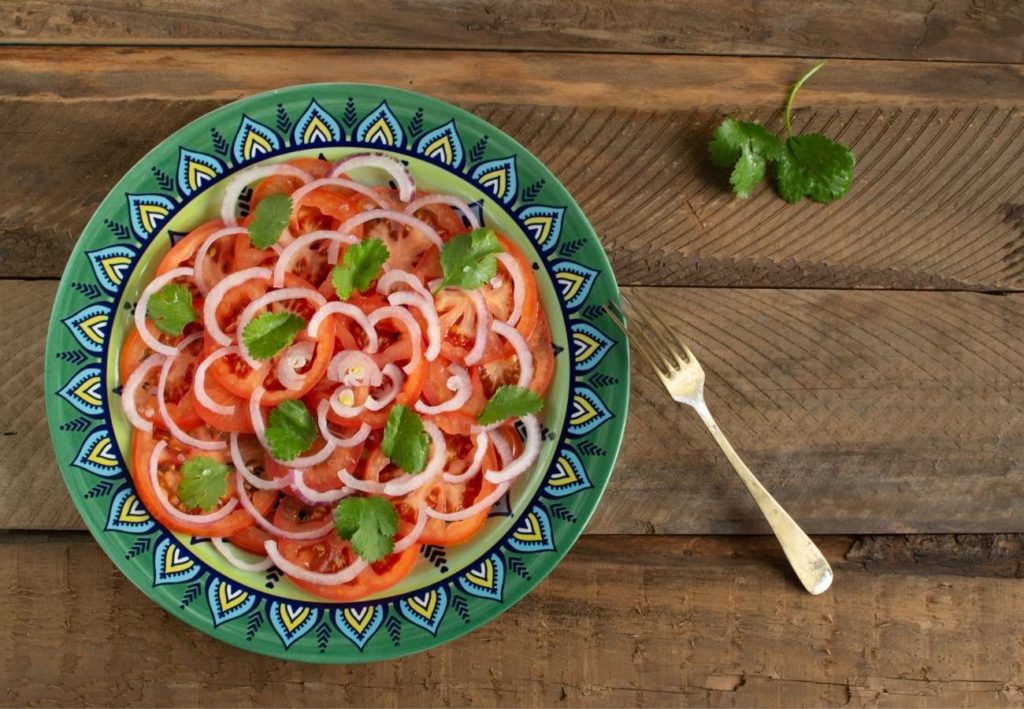
Kachumbari is an uncooked salad prepared using chopped tomatoes and onions. It is not just traditional to Rwanda but also to its Great Lakes neighbors. The word kachumbari is believed to have been derived from the word cucumber which is a common addition to Kachumbari.
In order to make this simple salad more flavorful, many other ingredients (such as little chili, herbs like coriander and parsley, and lemon or lime juice) are also often added.
Icyayi
Icyayi is a traditional Rwandan black tea which is generally served with snacks and midday meals. Typically consumed hot, this tea can be sweetened by adding milk and sugar, but many people consume it without any additives.
Rwanda tea was first grown in 1952 and since then, its production has witnessed a significant increase. Throughout Rwanda, one can easily find icayi as it is sold everywhere from cafes to street corners.




